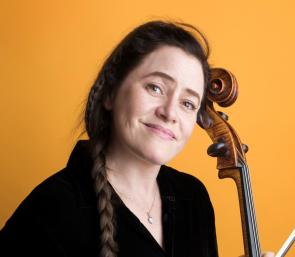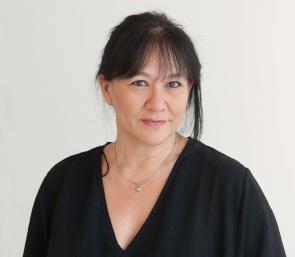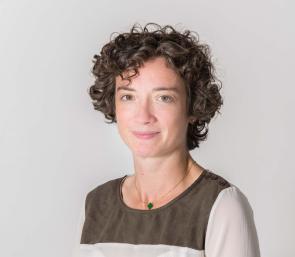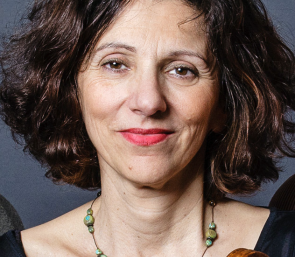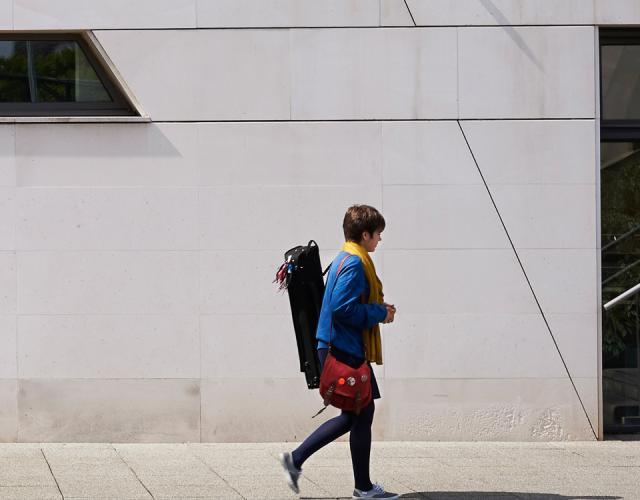
Complementary chamber music B
INFORMATIONS
-
Objectives and content
Chamber music sessions
The department organises two chamber music sessions a year, one in the autumn term and the other in the spring term, according to the following timetable:
Enrolments
Courses
Presentation of programmes
Examination
Autumn semester
September
Oct - Dec
end November
December
Spring semester
January
Jan - Apr
end March
April
No student may take more than two modules per semester.
No student may take part in more than two duets per module (except for percussion, double bass and harp: one duet).
This discipline is divided into four teaching modules, each lasting one semester:
- Module A: Compulsory Formation
- Module B: Contemporary writing programme
- Modules C and D: Free formation
Module B: Contemporary writing programme
To pass Module B, the group must perform one or more works using elements of contemporary composition.
To guide the students, the department publishes a list of works that can be used to validate module B. This list is drawn up by the head of department on the advice of the teachers in the subject.
Students may themselves propose works that are not on the list. In this case, they must obtain approval from the head of department before registering for the session.
During the examination, the contemporary writing programme must last between 8 and 15 minutes.
-
Entrance terms and conditions
Compulsory for all students enrolled on the1st cycle in the department of classical and contemporary instrumental disciplines (except Organ-interpretation, Organ improvisation and Piano improvisation), from the 1st year.
The situation of students in the1st cycle of chamber music -2nd main discipline is examined on a case-by-case basis.
On reasoned request to the Head of Department, the first-year assignment may be postponed for one year.
-
Assessment terms and conditions
Assessment
Before each examination session, each teacher confirms to the Registrar the list of groups that he or she will be presenting at the session and gives an assessment of their attendance and work.
An internal jury validates or rejects the group's performance and awards an AB, B, TB, TB unanimously and TB unanimously with congratulations for the corresponding module.
Oral presentation
Students will give a short oral presentation (maximum duration three minutes), in one or more voices, focusing mainly on the reasons for their choice of repertoire for this round; for example, the formation, style, writing techniques, originality of the work, etc. They will base their presentation on a written report, which will be presented to the class. They will use a personal argument based on the score, choosing an angle or aspect of the work on which they wish to focus in particular.
Teachers of musical analysis, introduction to music history, research methodology or French can help prepare this presentation.
Attestation of complementary chamber music
To qualify for the certificate, each student must pass all the modules corresponding to his or her course:
Course followed
Modules to be completed
Number of duets
Double bass, harp and percussion -1st upper cycle
Modules A, B and C
1 duet maximum
Martenot waves
Modules A, B and C
2 duets maximum
Accompaniment, choreographic accompaniment, accordion, viola, bassoon, bassoon germany, bassoon french, clarinet, horn, flute, guitar, oboe, piano, saxhorn/euphonium, saxophone, trombone, bass trombone, trumpet, tuba, violin and cello -1st cycle Superior
Modules A, B, C and D.
2 duets maximum
-
Duration of studies
Between 2 and 6 semesters
Until the attestation is obtained in full, students must enrol for at least one semester per year.
Students who have not obtained the attestation by the start of their final year of study in the cycle must enrol for the autumn semester.
-
Reward
Attestation
-
Erasmus
Yes



